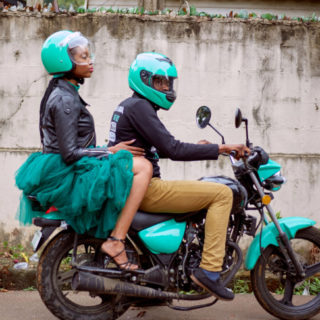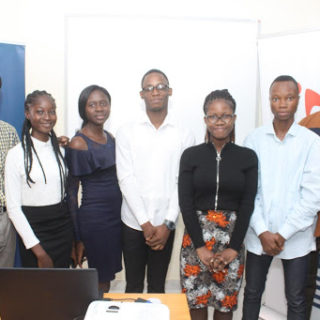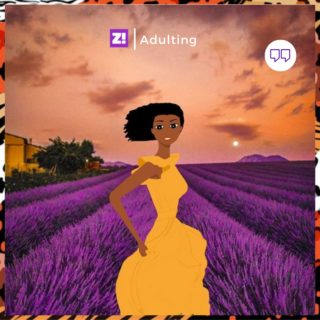In certain cultures, adulting is marked with rituals, tests and celebrations. But when you’re Nigerian, adulting often comes at you without warning. It comes in different forms; bills, family, responsibility, and you guessed it, kids.
Everyone who’s crossed either of those bridges has a unique story. A story that can help you see you’re not alone. That’s why every Thursday at 9 am, we’ll bring you one Nigerian’s journey to adulthood, the moment it kicked off and how it shaped them.
The question we’ve been asking is, “When did you realise you were an adult?”
The lady in this story is a 27-year-old interior decorator who’s lived almost all her life in Ibadan. She thinks she’s been through her share of hardship, and she has – but it has felt fairly easy. That’s the same thing she says about adulting, even though she’s practically an orphan with a ‘worthless’ degree in Botany and four siblings. She has one simple life hack; Never Walk Alone. Elite mentality or
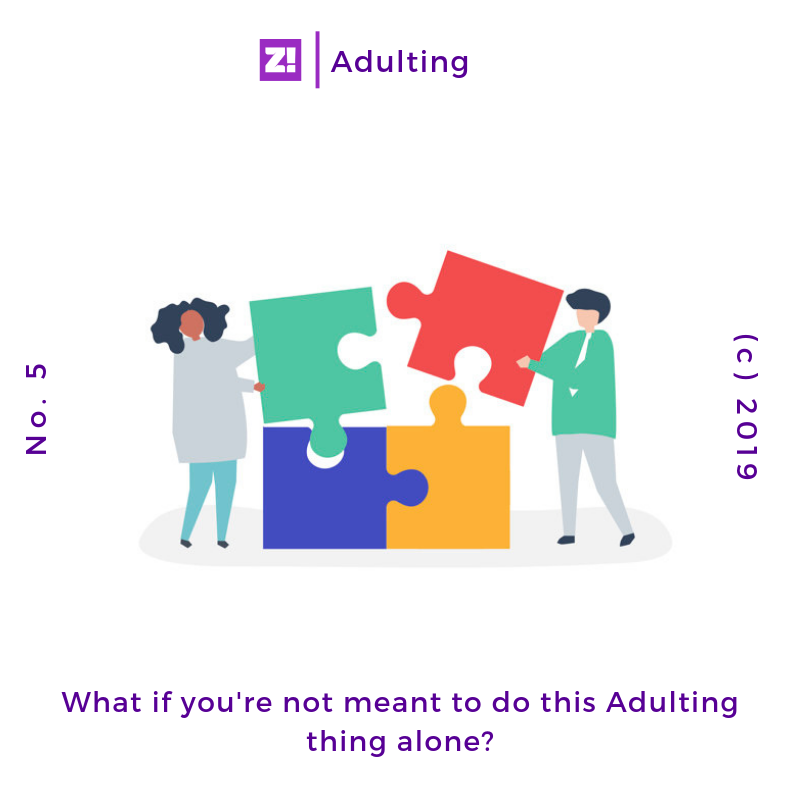
“One of my favourite things to do is to ask people the most random questions, like ‘How your life?’ or ‘How life dey do you?’ I never mean it in a derisive sense. I mostly ask because I want to know how they’re doing at the moment and how they see everything that’s happening around them. Maybe I’m waiting for a particular answer.”
“If someone was to ever ask me either of those questions, I’ll remind them of the scene in Wall-E, where the robot realises the world is
“Growing up in a large family, living smack in the middle of Ibadan, taught me most of what I know about people. My father, Heaven rest his soul, was many things; a drinker, a womaniser, an eternal optimist, but he was more than anything, a people person. His third wife often says if you could have paid him to sit down and just be with people, he would have done nothing else with his life. Sometimes, it happened before our eyes even. He had this thing where he would often get distracted and spend obscene amounts of time catching up with people. Old schoolmates, relatives he didn’t really like, neighbours with too much interest in his business.”
“He somehow had time for everybody, including women and children. There are five of us from three mothers. Three women from three different eras of his life. My mother was the second; they met when he moved to Ibadan from Lagos. Things got hard when he lost his job in a mass retrenchment in the 1990s. I can’t remember the year or the story.”
“Years later, my dad would often talk about how this was a point in his life when things were shaky and she stood by him. He used to say “Bunmi
“In order of appearance, Bayo, Ibukun, me, Dolapo and Lolade.”
“Take your time to process it.”
“We grew up together, and I mean that in the most literal way possible. You could hardly tell, except for certain facial features, that we were born by different mothers. We went to the same schools together and came back together. Every child had a rung on the family’s hand-me-down ladder. When I was younger, my mum was THE wife; the first wife had left and travelled out before they even met, so she did her fair share to look after this troupe of hyperactive children.”
“Until I was much older, I always wondered why my older half-siblings lived with our dad and not their mother. She was in
“I talk about this more than any fond memories of childhood because I often felt like I was recruited, against my wishes, to join a group of children that would keep increasing as time passed. This was before my mum upped and left when I was around 14, in my third class in secondary school. Admittedly, my mother’s a difficult person to live with. Visiting her isn’t on my list of favourite things to do till now. But back then, a young girl with hormones knocking on her body, puberty waiting to wreak havoc, I was just lost.”
“They had been fighting before. Then I came home from school one afternoon and she just wasn’t there. I vividly remember dropping my bag and waiting, until my older half-brother – Bayo – came home. I raised the alarm – mummy was missing. He didn’t think so.”
“He’d been here before. We were newbies. We didn’t know how to deal with it. Aunties and uncles offered half-heartedly to take us in but my brothers always advised us to stay with our dad. My mother, I think, was deliberately staying away to see what we would choose. I think she knew.”
“We were raised as a team, and breaking off from the group felt like a bigger evil than supposedly leaving my mum to live her life. We chose to stay with my dad.”
“Bayo was our leader. My dad soon began to show up often with one ‘aunty’ like that. Then he took us to Sweet Sensation one Saturday and introduced her as ‘our new mummy’.”
“I didn’t think about growing up much when I was younger. I feel disgusted when I remember I had this phase where I just wanted to marry a rich man, move to Abuja and live the baby girl life. The first time I ever felt responsible for anything other than myself was when Bayo left for university. We had always figured things out as a group. Then all of a sudden, squad minus one. Then Ibukun got into school as well.”
“I didn’t have much luck as my older siblings getting into university. I’m one of the veterans; I fought JAMB for five years.”
“The first year was especially hard for me.
“My dad’s lifestyle eventually caught up with him, I think. He slumped in the backseat of a cab, on his way home after a long day of work, sometime in 2006.
“She was very young for the position she found herself in. She could have begun a new life but she made us her problem, even though she had a young daughter and a job she was struggling to keep. The bank and insurance company gave us some money but creditors and family showed up too. By the time it was all done, we were alone.”
“I’m a firm believer in strength in numbers. People tell you that two good heads are better than one but you know what’s better? Three or four good heads thinking in the same direction. When money began to visibly dry up, I began alternating between the tutorials I’d been taking for two and a half years and interior decoration classes. The classes were part of a skills acquisition program organised by a church in our area. One thing led to another and I decided I wasn’t going to university anymore.”
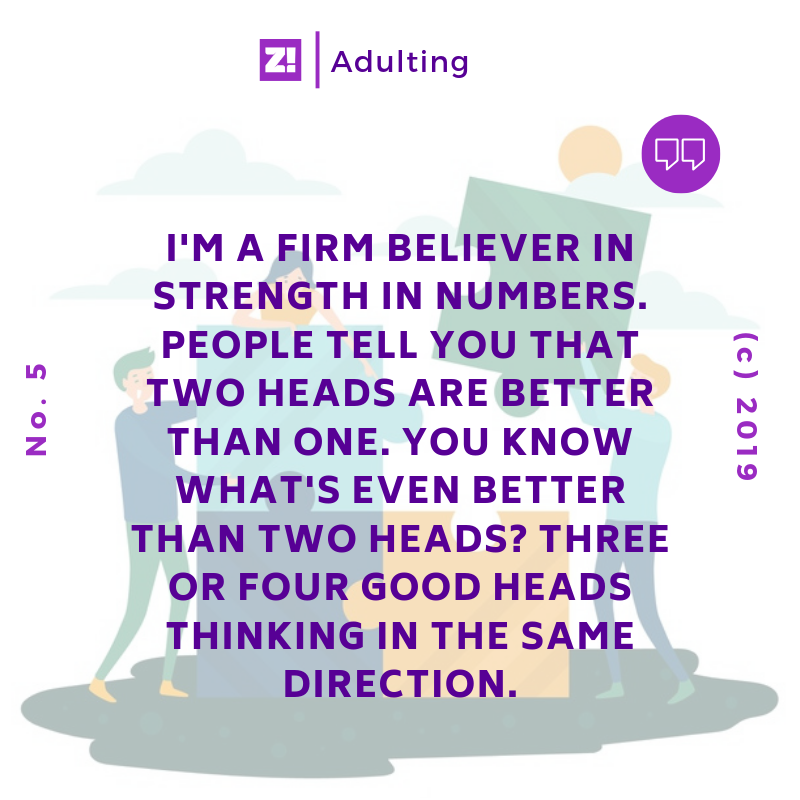
“So this is how it happened. There’s an entire community of young pastors, arming young people with religious dogma and raising up small, energetic armies of ‘believers’. They helped me to ‘understand’ that not getting into university was not the end of the road and convinced me that my true calling was service to a higher purpose. I started sleeping at the church, spent days running errands and waiting on people. My people must have discussed what was going on because not long after, just before what would become my final JAMB, Ibukun asked me to come to spend a few weeks in Akure – he was at FUTA at the time.”
“When I got there, he’d agreed with a friend to have me stay at her place for a while in exchange for doing my share of chores etc, I was reluctant but I stayed. I wouldn’t have admitted this with a gun to my head but being around students got me interested again. So I finally made an effort. I passed and got admitted to study Botany. I was 21.”
“Remember what I said about three good heads? Bayo finished from the University of Ilorin and went for NYSC in, of all places, Kebbi. Somehow, he had an epiphany about viewing centres so he gathered money from friends to start a viewing centre – one of those wooden sheds with screens where people pay to watch live football matches and play FIFA. That money, his hustling, along with a share of my stepmother’s salary, and whatever I managed to get from ushering jobs, put me through four years in UI.”
“What I can do with my degree is somewhat limited, due to no fault of mine, but if anyone cares, it’s definitely not me.”
“I can’t believe that my stepmother managed to keep paying the rent on the flat we grew up in. But she did. Bayo was chipping in before I even got into University. Then, my other brothers joined in as well. Bayo and Ibukun have a place in the Eleyele area now; Ibukun lives with them.”
“I’ve seen my fair share of hardship, I think. But I don’t think I’ve
“That’s why I mentioned Wall-E in the beginning; humanity is evolving and I think we’re so locked in promoting tunnel vision that we’ve forgotten that life has always been a collaborative effort. People are so self-oriented nowadays; people are so locked in their own personal battles that we rarely share help or plans or ambitions. And the sad truth is that nobody is better alone.”
“I’ve spent my entire life thinking with the brain power of four or five people. Two of my brothers live together in an apartment neither of them could afford alone. Bayo works at a job he got on a recommendation my stepmother got for him. We live together with my younger half-sister in Oluyole.”
“I understand that I have a special support system; Bayo is the bulldog my father never let us have. Ibukun can calm a raging storm. Not everyone is as lucky with family or even people that care as I am. And I appreciate it. Think about it like this; you know how everyone talks about their destiny-helpers, I think more often than not, they’re around you. You just need to let yourself see them.”
“Partly because I was too old and too broke to lose myself in whatever social life Ibadan could offer, I graduated with good grades. Interior decor has led me to set and stage design now. I’m serving at the moment but I have a deal with my PPA so I only go to sign once a week. Sometimes, I have a lot of gigs.”
“Last December, I even got to join a stage team for some big concerts in Lagos. When I get big money like that, I send the windfall to my brother, Dolapo. He works as a marketing agent for a Chinese phone brand by day and obsesses over investments like crowd-farming or treasury bills at night. Then, when I have nothing to do, I go to chill and help Bayo out – he opened a popular new lounge in that Crown Hotel area on Iwo Road some months ago.”
“I’ve done it so many times that I know it’s redundant to keep thinking of how different my life would be if my dad was more centred, or my mum didn’t leave, or my dad didn’t unwittingly raise Bayo to look out for the victims of his philandering (or his love of life, as one of his best
“There’s no need to tighten the world to your chest because you’re an adult, whatever that means; you didn’t destroy it by yourself, you can’t fix all of these problems and all that life will throw at you alone. Remember three or four good heads in the same direction?”
“That’s my adulting and I love it. I’m a cog in a wheel. Please don’t ask me when I’m getting married.”

